Meanwhile, In Pakistan, The Floods Continue To Worsen
While American politics concerns itself with trivial issues, Pakistan finds itself dealing with a devastating natural disaster that could have real geo-political implications.
As Dave Schuler noted on Friday, Pakistan has been dealing with record-breaking flooding for the past three weeks. Today, in fact, there are reports of a new round of evacuations in the face of a threatened flood surge, and the nation is just now starting to contemplate the devastating economic impact of the disaster:
The floods in Pakistan continue to roll south towards the sea, leaving behind a trail of destruction, the magnitude of which is still not fully clear.
The government has asked the World Bank and the Asian Development Bank to carry out damage assessments which officials say will take a month.
Meanwhile, experts have tried to put together a rough picture of economic losses, and many warn there may be huge social costs as well.
But while the scale of the calamity is monumental, the response of the international community has been lukewarm.
This is causing concern, both in government circles and among civil society.
And, at least among some flood victims, there seems to be growing anger toward the international community in general, and the United States in particular:
Displaced people are camping everywhere. Shelters of canvas and plastic sheeting line the edges of the highways linking Islamabad to Peshawar in the north-west of the country.
The roads are raised, a precious strip of dry land in a sea of stagnant floodwater and thick mud.
I stopped at one makeshift camp and a group of men rushed forward as soon as I got out of the car, crowding round.
One was a thin-faced man in his 40s called Iftikhar.
He pointed to the swamped ground beyond the railway tracks and the remains of his village. His house had been badly damaged, he said.
Even though the waters were starting to recede, it was too unstable for him to move back there with his six daughters.
We desperately need help from the government, so we can rebuild,” he told me.
The US is spending $5bn a month on the war in Afghanistan – that puts into context what they’re giving us”
He rolled back a sleeve and showed me the skin rash on his arm. “Everyone is in a bad state,” he said. “If we don’t get money, I don’t know what will happen to us.”
Others chimed in around him. Many sounded miserable and frustrated.
They were getting some food, they said, but their community had been knocked back about 25 years.
Sugar and flour was not enough – they needed new houses, new possessions, new books and supplies in the local school to replace everything they had lost.
Some criticised the government, saying the aid was not fairly distributed.
Others blamed the West, including the US, for failing to give enough help.
One man turned his anger on me: “What about your country?” he said, heatedly. “Why aren’t you giving more?”
Flood survivors walk amid debris in Nowshera on 17 August 2010 Some say their communities have been knocked back about 25 yearsElsewhere in the small camp, businessmen were handing out donations from the local community.
If there was not more support, they said, the security situation might worsen.
There has been fighting already in the camps, said one.
“We’re doing so much to help the United States in the war on terrorism. Now we’re in crisis and we expect help,” said one of the businessman donors.
His colleague agreed: “Now’s the time for them to prove their commitment to us.”
The reality, of course, is that the United States is at the forefront of the relief efforts and recently upped the amount committed to flood relief to $ 150,000,000 and, as Dave noted in his post on Friday, the U.S. has done this before, such as during the recovery from the devastating 2005 earthquake:
In the aftermath of the 2005 earthquake U. S. Marine helicopters carried aid to Pakistanis, the United States gave more than $1 billion in aid to Pakistan, and for the better part of a year the U. S. Navy was the primary healthcare provider across an enormous swathe of the country. There’s a summary of aid rendered by the U. S. military here. The Washington Post suggested at the time that the aid would improve “the U. S. image” in Pakistan. Although the aid materialized the improvement in our image didn’t.
And the report noted above would seem to indicate that it hasn’t improved much in those five years. At the same time, though, I’m not sure that it matters. Whether we get the credit for it or not, assisting in a humanitarian crisis is something that only the United States can do on a large scale anymore and, when there are entire areas of the country that remain cut off from the outside world, it’s fairly clear that only American military equipment will be able to deliver aid to the people who need it.
I share Dave’s concerns that the aid itself might not ultimately get to the people who need it, but it would seem there’s a far greater danger in doing nothing and allowing a nation like Pakistan to slip even further into chaos than it already has over the past decade.
Photo Credit: BBC
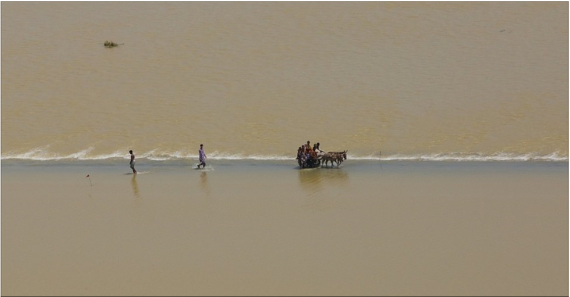

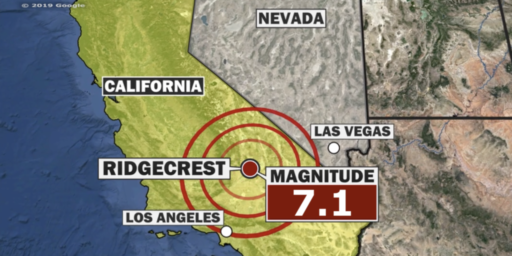
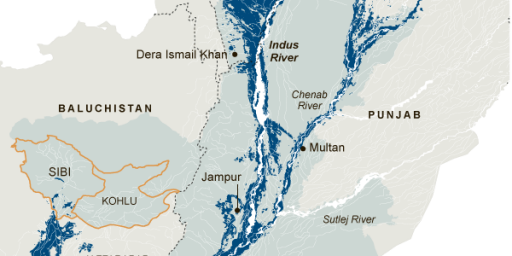
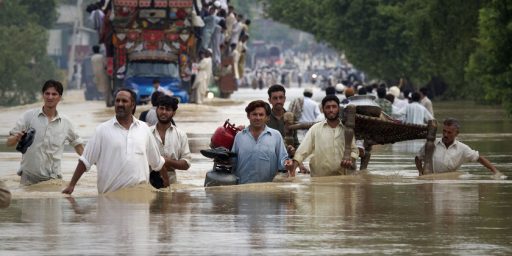

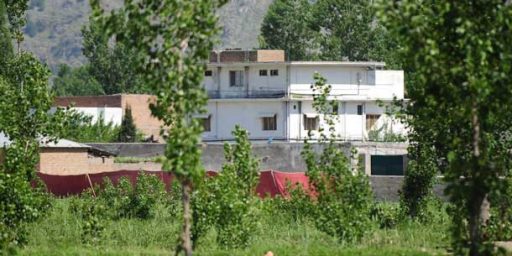
Really, they found the one displaced guy in a remote village who keeps track of US spending on the war in Afghanistan? That right there labels this BBC report as an opinion piece rather than actual, you know, journalism.
Still something that seems to be forgotten when writing about aid and other US spending sprees, we’re broke. If you don’t believe me just read on of the posts on the US budget, spending or war funding. So, this $150,000,000 we’re sending is borrowed cash. Cash that is increasingly becoming apparent we can’t pay back. How long before we’re cut off?
Now it would be cruel to all of a sudden get spending religion and cut these people off but Europeans and all the other America haters, need to be put on notice that they need to develop some capability themselves. That until America gets her finances in order, we’re out, taking an austerity break. That those who sit around feeling all sophisticated and superior but don’t have the capability to get themselves much less others out of harms way, need to cough up some cash, build some ships, some helicopters, find a decent number of fine young men and women to be of value in the world.
“How long before we’re cut off?”
i wonder how many of the people who are asking that now were asking that back when the Bush tax cuts were first passed or when the first huge gobs of cash were being spent on Iraq…
$150 million to Pakistan for a little flooding….in these economic times..that’s insane! How are we going to afford to continue to give $3-5 billion a year to Isreal so that Isrealis can continue to have national health insurence the latest weapon, and at the some time continue to build, expand, and protect all those (illegal) West Bank settlements.
“Really, they found the one displaced guy in a remote village who keeps track of US spending on the war in Afghanistan? That right there labels this BBC report as an opinion piece rather than actual, you know, journalism.”
I have travelled throughout Asia numerous times. On an early visit in the late 1980s, I visited rural Indian villages where I was the first white guy high school students had ever seen. By 2001, things had changed. The internet is almost everywhere. There is often one home in a rural area that has connection to the www. Americans have no idea of the significance of this. For decades, the US persuaded people with soft power ($$) and a great media campaign leading people to believe we were benevolent, generous, rueuctant warriors. The www has changed all this. Hundreds of millions of the world’s poor now see us as we are: entitled, overweight, polluting, militaristic, nationalistic, hypocrits. Can a guy in rural Pakistan know how much we spend on the Afghan War? You betcha! And unless we can win the “hearts and minds” of these guys (which is doubtful in 2010), we will lose the “war on terror”.
America is the only country in the world that has decided to ignore the fact that it has longback over exceeded its known resources in spending on war, charities, show of strength, cars and anything that does not really help themselves. If only Iraq war was not started with one pretext or the other America would have been useful to its own people by offering, health, wealth and satisfaction. Financial Bonds in favour of China running in to billions of Dollars would not have arisen in the first place. America has to wake up to reality and resolve to do what is in the interest of its citizens. Avoid waging wars in the name of bringing peace. Which country has been successful in starting a war to end wars? Never in the annuls of human history such a thing has ever happened. Simple people learn from their mistakes. Great people learn from blunders.